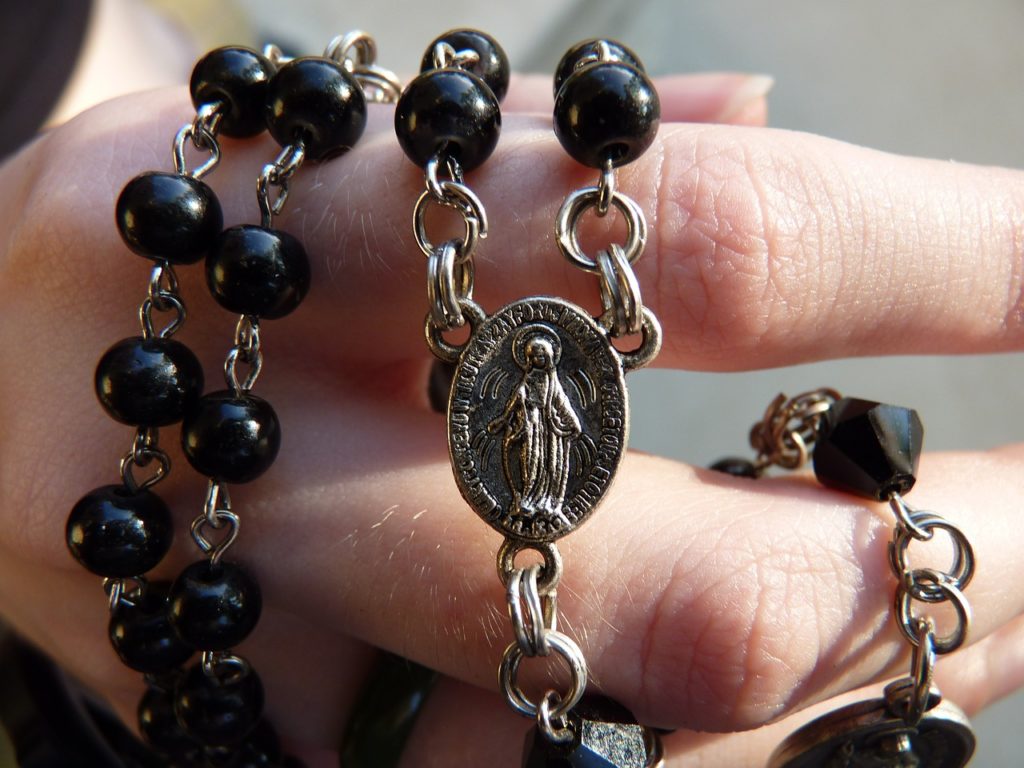
Photo courtesy of Pixabay
A 42-year-old man recently broke into Our Lady of Rosary Catholic Church in Manhattan, vandalized a large crucifix, and chased staff members out of the church before assaulting a responding NYPD officer. This is the third attack against Catholic sites since June in New York City alone. The most recent example nationwide came only two days later at a Catholic parish in El Paso, Texas.
Something is terribly wrong, and too few are paying any attention. I am Jewish, not Catholic, but I raise my voice now on behalf of those under attack, as I did years ago.
During my senior year at Princeton University, an egregious art exhibit went up in a prominent campus location. The display desecrated objects holy to the Catholic faith and mocked Catholic religious symbols. After significant backlash, the school administration held a forum to discuss the artwork. As a former president of two major Jewish student groups, I was, perhaps, an unlikely candidate to speak up in defense of my Catholic brethren. Indeed, as I told Glenn Beck when my involvement landed me on his cable news program, I’m an equal-opportunity offender. I believe very strongly that we should treat others the way we want to be treated (i.e., respectfully), but I also err on the side of free speech when it comes to the right to be free from coercion in criticizing and even ridiculing ideas with which we disagree.
Yet, as I told the packed crowd at that forum, I was not speaking out because I was worried that my own Jewish faith would be the target of the next sacrilegious art display. On the contrary, I spoke out precisely because I believed that would never be the case. (Well, “never” is a strong word, but at the time it would have been unthinkable.) And all the more so with respect to Islam or any other of a number of “protected” identity groups on campus and in society at large. In my own judgment, we would certainly have been better off without the exhibit to begin with, but the real crime in my mind at the time was the double standard.
“Double standard” came to mind again this summer with news of the fire that destroyed Orlando’s Incarnation Catholic Church on the anniversary of the Dobbs v. Jackson decision, in which the Supreme Court overturned Roe v. Wade. Since that momentous decision, violent attacks, including arson and other destruction of property, have been perpetrated against Catholic churches and other institutions considered to be affiliated with the pro-life cause, such as pregnancy resource centers. Last September, my colleagues at the Religious Freedom Institute (RFI) issued a report documenting criminal attacks against 174 Catholic sites, across 38 states and Washington, D.C., and against 63 pro-life organizations in 26 states and D.C. Since that report, the attack totals have risen to 218 Catholic sites in 41 states and D.C., and 73 pro-life organizations still in 26 states and D.C. The situation has gotten so bad that RFI later released a “Security Toolkit for Religious Institutions,” reflecting many of the best practices that the Jewish community has developed over years of antisemitic assaults on synagogues, community centers, schools, businesses, and other Jewish organizations.
It goes without saying that, unlike with the art exhibit, there is no free-speech defense for violence, even in the context of a “mostly peaceful protest.” But there is a noteworthy parallel in the remarkable dearth of arrests, charges, and prosecutions for these many crimes – to say nothing of the lack of media coverage. In 2020, the FBI tasked dozens of federal agents with getting to the bottom of a “noose” found hanging at a racing event. It turned out to be a simple rope tied into a handle for closing the garage door and, per video evidence, had been there long before the driver, assumed to be the target, had arrived. Would that the Department of Justice displayed such verve investigating attacks on Catholic houses of worship and pro-life groups, where there has been real harm and threat to life and limb.
Over the majestic, classical façade of the U.S. Supreme Court read the words “equal justice under law.” This is a bedrock principle of the rule of law and an essential ingredient in the maintenance of a decent civilization. Police, prosecutors, and judges must protect citizens and defend the peace without prejudice. Just as we strive for a society in which a person’s skin color is irrelevant to enjoying equal treatment in the criminal justice system, so must we strive for a society in which a person’s political and moral beliefs, including those rooted in religious convictions, are likewise irrelevant. Turning a blind eye to crimes because they are committed against one’s political opponents is the road to perdition. And it gives the other side the excuse to do the same in return when the shoe is on the other foot. Wickedness begets wickedness.
This essay was originally published in RealClearReligion and is republished with permission.


